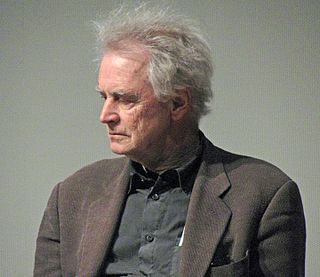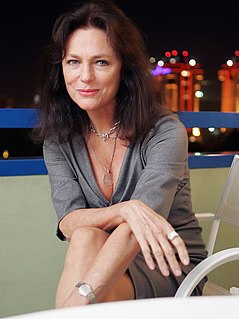A Quote by Daniel Radcliffe
It's really good to talk about it [ hydraulic penises and prosthetic butts], and it's very gratifying when people ask us about the other aspects of the film [Swiss Army Man], but [those things] are part of the movie and they're important and hilarious, a very fun part of the movie, so there's no sense from us of not wanting to talk about that. I think it's exciting that those things exist in a film that is also very heartfelt and emotional and profound.
Related Quotes
When you start talking about same-sex marriage, you start talking about abortion, and I think those issues are very very important and very interesting and very right for us to talk about, but when we allow those issues to cannibalize all other issues we find ourselves homeless while we debate about it.
I often find in the film world, that it's very self-referring. If you talk to someone about films, they talk about them in terms of other films - rather than as something that happened to them in their life. And I'm really keen to get back to film as a reference to real things, not necessarily to other films.
People who complain often say things like, 'I'm not being negative, I'm just being realistic.' Really? How is it anymore 'realistic' to focus on and talk about things that discourage us and make us feel bad, than to focus on and talk about the POSITIVE aspects of life that make us feel GOOD? Both area equally REALISTIC, but which you choose to dwell on has a very different impact on the quality of YOUR life.
I always wanted to have a young female artist that would tell me the truth about life and not only talk about the good things or the things that were exciting or interesting but also talk about the things that people in general are skeptical to talk about- the bad things that do happen. A good 50% of our lives is things that are happening that we're not necessarily super thrilled about and I feel like that's missing from pop music a lot of the time so my main goal is to be truthful about everything and not just specific things.
If the movie is terrible you can have fun. You can joke about it and have a ball. The movie is already sort of established as a kind of extraordinary piece of work even though it hasn't opened yet to the public. It is harder because you can't go against it and you can't be interesting. You have to go with the flow. Although one is very happy to be in it, it is sort of hard to talk about it. It is hard to talk about successful. It is much easier to talk about failure.
I know that part of why I was excited to do this was the sense of play and childlike wonder and the spirit that's in the Daniels' work. I think we're tracking some issues that are actually quite sad or lonely but I think in a joyful, creative way. So I like that balance. I think singing in the woods, the music and spirit of that - there's something very pure about the film [Swiss Army Man].
The funny thing about 'Take Shelter' is that a lot of people talk about how it was allegory for the economy and things that were to happen. And that was so on the nose in the movie for me. I was like, 'That's obvious.' It's the other stuff about marriage and commitment and those other things that I spent the most time thinking about.
When you're making a movie, you don't think about the outcome. That's something I'm grateful for: whenever I go and do a new project, I never think about the outcome. It's always just about the work at hand. That's the fun part. The other part is always something I've had a struggle with, which is promoting the film. I know it's important.
We have to do something about the cartels. I did talk to [Enrique Peña Nieto] about it. I want to help him with it. I think he's a very good man. We have a very good relationship.He seemed very willing to get help from us because he has got a problem, and it's a real problem for us. Don't forget those cartels are operating in our country. And they're poisoning the youth of our country.
'Hereditary' is unabashedly a horror film, whereas 'It Comes at Night' was a lot of things: it was a thriller; it was a postapocalyptic drama. It was a slow-building, very dark movie about relationships. 'Hereditary' is also about relationships, and I hope it functions as a vivid family drama, but it is also very much a horror film.

































